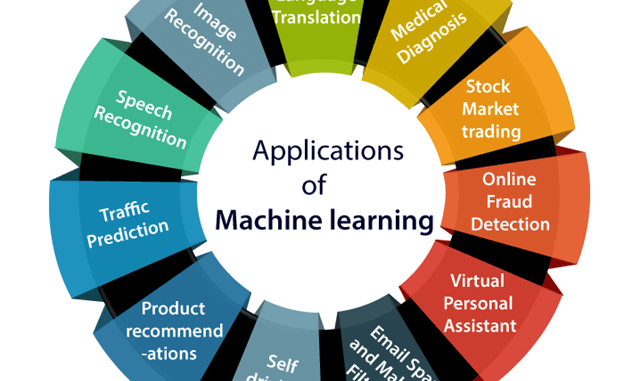
Artificial Intelligence (AI) and Machine Learning (ML) have revolutionized various industries, including business. With the advancements in technology, businesses are now incorporating AI and ML applications to streamline operations, improve decision-making processes, and enhance customer experiences. This article explores some of the key applications of AI and ML in the business world.
1. Predictive Analytics
One of the significant applications of AI and ML in business is predictive analytics. By analyzing historical data and patterns, AI algorithms can generate forecasts and predictions to help businesses make informed decisions. From sales forecasting to demand planning and risk analysis, predictive analytics enables businesses to anticipate future trends, improve resource allocation, and minimize potential risks.
2. Chatbots and Virtual Assistants
Chatbots and virtual assistants powered by AI and ML have become increasingly popular in various industries. These AI-based tools enable businesses to provide real-time customer support, answer queries, and engage with customers 24/7. Chatbots can be programmed to understand customer intent, provide personalized recommendations, and even complete transactions. They not only improve customer experiences but also save businesses valuable time and resources.
3. Fraud Detection
AI and ML technologies play a crucial role in fraud detection and prevention. ML algorithms can analyze large volumes of data and identify patterns that indicate fraudulent activities. By monitoring transactions, user behavior, and network traffic in real-time, businesses can detect and mitigate potential frauds before they cause significant harm. AI-powered fraud detection systems continuously learn from new data to enhance accuracy and stay ahead of evolving threats.
4. Customer Segmentation and Personalization
Effective customer segmentation is essential for businesses to tailor their marketing strategies and deliver personalized experiences. AI and ML can analyze vast amounts of customer data, including demographics, preferences, and behaviors to identify distinct customer segments accurately. This facilitates targeted advertising, customized product recommendations, and personalized promotions that resonate with individual customers, ultimately enhancing customer satisfaction and loyalty.
5. Supply Chain Optimization
AI and ML technologies are transforming supply chain management by optimizing various processes, improving efficiency, and reducing costs. ML algorithms can analyze historical and real-time data to predict demand, optimize inventory levels, streamline logistics, and enhance supply chain visibility. This enables businesses to minimize stockouts, avoid overstocking, reduce lead times, and improve overall supply chain performance.
6. Sentiment Analysis
Sentiment analysis, also known as opinion mining, uses AI and ML to analyze social media posts, customer reviews, and other forms of user-generated content to determine sentiment. By understanding customer sentiments and feedback, businesses can gain valuable insights into their products and services. This can be used to identify areas for improvement, address customer concerns promptly, and develop targeted marketing campaigns to enhance brand reputation.
Conclusion
The applications of AI and ML in business are vast and continue to expand as technology evolves. As businesses realize the benefits of these technologies, the integration of AI and ML becomes increasingly crucial for staying competitive in the modern business landscape. From predictive analytics to chatbots, fraud detection, customer personalization, supply chain optimization, and sentiment analysis, these applications empower businesses to make data-driven decisions, deliver personalized experiences, and improve operational efficiency.
